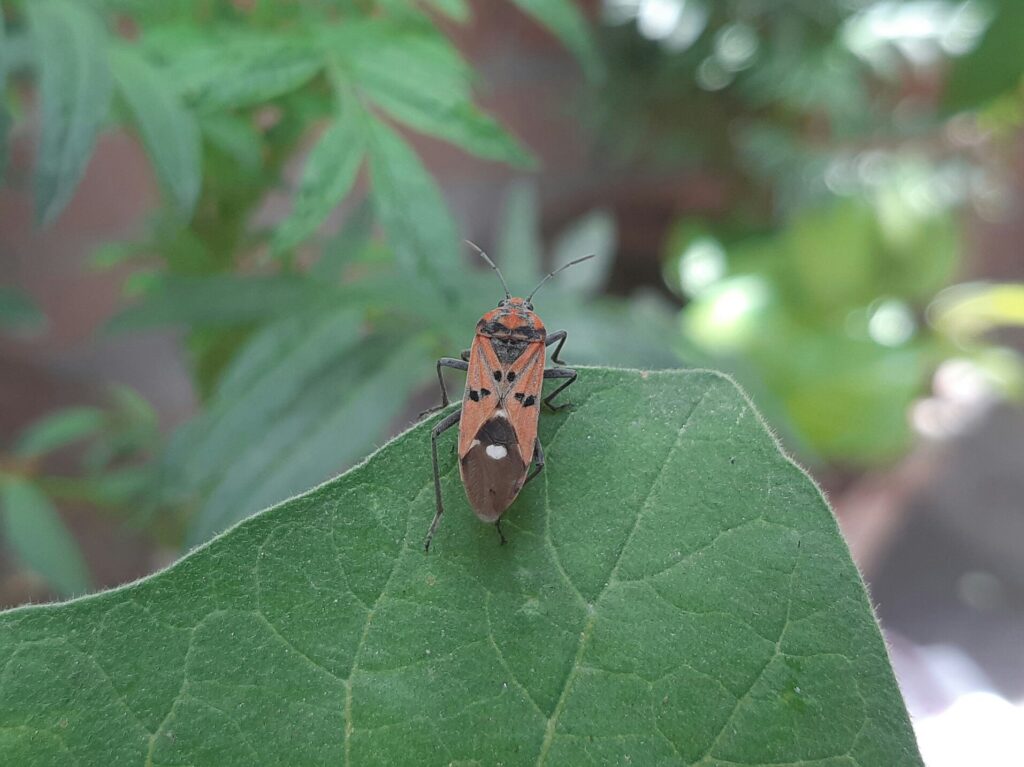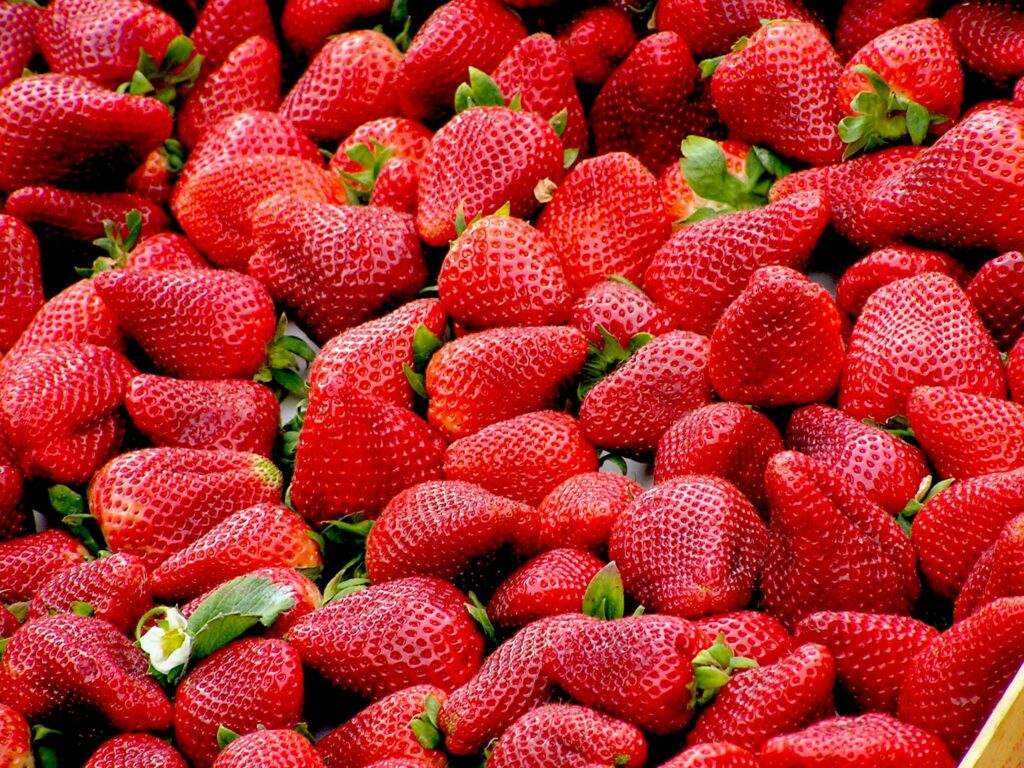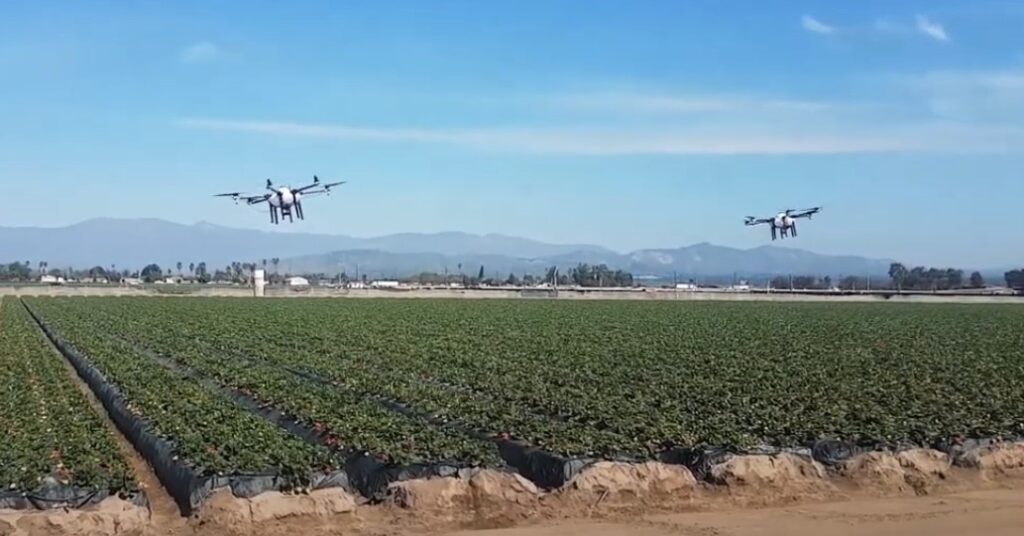An Israeli startup has developed artificial intelligence-driven software that allows drones to autonomously administer pesticides to crops, without exposing farm workers to potentially dangerous chemicals.
The delivery of the pesticides, which are used to control weeds, insects and diseases on crops and other plants, involves spraying chemicals onto the plants. And although they are designed to help farmers, experts have long warned that some of those chemicals are dangerous to humans.
The United Nations Environment Programme even describes pesticides as “inherently hazardous,” and classes a small number of them as Highly Hazardous Pesticides (HHPs) that cause disproportionate harm to both the planet and people.
LahakX co-founder and CEO Eylon Sorek, a veteran entrepreneur, tells NoCamels that he and his partners created the company out of a desire to improve working practices in farming, pointing out that agriculture is not a field with a multitude of technological advancements.
“[We were] finding ways not to get close to pesticides and get robots to do the job instead,” Sorek says.
To create the autonomous solution, LahakX placed its proprietary AI communication and computing platform into drones already designed to spray pesticides, transforming them into unique, data-driven dispensers.
The autonomous drone has two different ways of spraying pesticides.
The first is a swarming method, in which one or more drones can automatically dispense the pesticide using pre-set coordinates received from the farmer or landowner.
Swarming is designed to allow multiple drones to simultaneously dispense different pesticides to different areas of a field, while also compensating for varying weather conditions.
“We wanted to have the flexibility and the availability to put together different sprayers in a single fleet,” explains Sorek.
The second method is spot spraying, which is a more precise operation.
The AI platform shifts gears for this mission, giving the autonomous device more refinement during the spraying process and allowing it to reach a range of different areas. This means the drone can locate specific spots in large fields and deliver only the necessary amount of pesticide in the desired area.
Furthermore, the drone can control the amount of pesticide being sprayed, says Sorek, depending on whether more serious treatment is needed or just prevention.

He explains that being able to have such control in spraying pesticides saves farmers money as they aren’t dispensing the costly chemicals to unnecessary locations – and, like the Israeli-developed modern drip irrigation, they administer the precious resource only where it is needed.
Sign up for our free weekly newsletter
SubscribeThe pesticide delivery is all controlled and calculated beforehand, using what Sorek calls “mission planning.” All the data about the particular field is entered into the platform and the AI allows LahakX to calculate which areas need treatment and how much pesticide will be needed.
When the algorithm has processed all the information, the drone is configured for the exact field.
“The key is to be able to take mission planning and know, given the different requirements, how these [fields] should be covered,” Sorek explains.
He says that for now, the autonomous sprayers are best suited to low-canopy crops such as strawberries, and in smaller sized fields as it has not yet been tested over a larger stretch of land.
The Ramat HaSharon-based company was formerly known as SkyX, but changed its name to the more appropriate LahakX (lahak is Hebrew for swarm) as part of an overhaul in 2022.
Currently, LahakX’s drone solution is being used by independent farmers in California and the company is exploring new ways to commercialize.
It recently started a collaboration with Aero Systems West, an aircraft manufacturer also in California, to develop its platform to accommodate heavier payloads of pesticides as well as fire suppressants.

That collaboration brought with it a grant from the BIRD Foundation (Binational Industrial Research and Development), an organization that promotes cooperation between US and Israeli companies.
The startup has also had funding from the Israel Innovation Authority, the branch of the government dedicated to promoting the high-tech sector, as well as from Israeli, American and British venture capitalists and angel investors.
“We try hard to not just raise money from investors, but also [from] different types of government grants and awards,” says Sorek about the huge sums required to keep the business going. The funding, he adds, goes primarily toward what he calls “hardcore” innovation and development.
“If you want to put out something in the field, it should work and beat the benchmark,” he says.
Sorek hopes LahakX’s patented drone pesticide dispensers will soon be fully integrated into standard agriculture practices, and believes that ultimately technology will have to move to autonomous machines.
“My children will see [farmers driving tractors and spraying pesticides] in museums and not in the fields,” he says.
Related posts

Editors’ & Readers’ Choice: 10 Favorite NoCamels Articles

Forward Facing: What Does The Future Hold For Israeli High-Tech?

Impact Innovation: Israeli Startups That Could Shape Our Future




Facebook comments